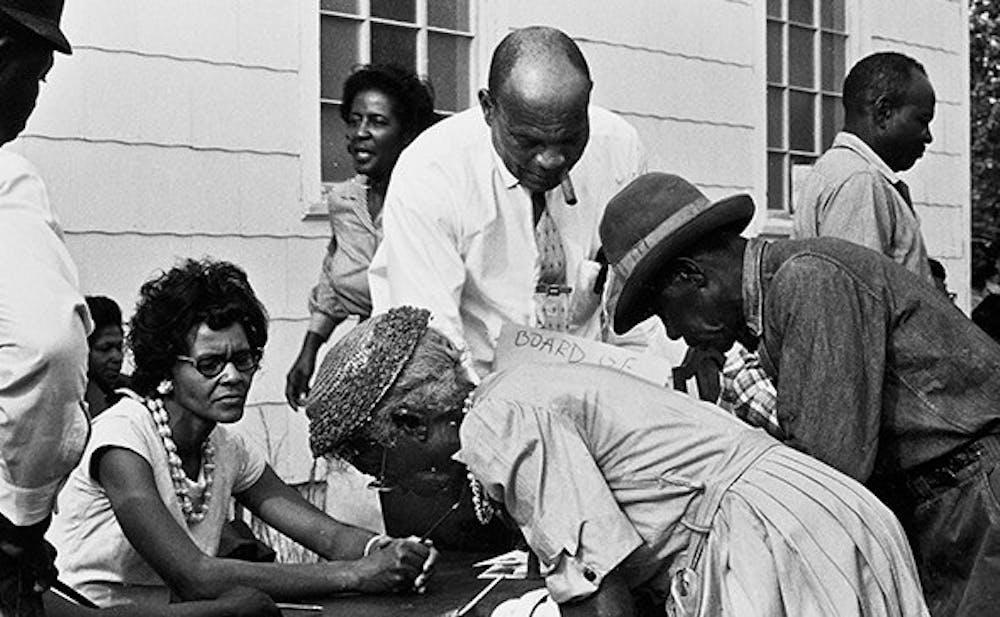Duke students and faculty worked in collaboration with national activists to launch a new website chronicling the story of the grassroots effort for black suffrage.
The website—One Person, One Vote: The Legacy of SNCC and the Fight for Voting Rights—launched Monday after working in tandem with Student Nonviolent Coordinating Committee veterans and civil rights scholars from around the country. Its launch took place the week before the March 7 anniversary of the 1965 “Bloody Sunday,” when state troopers attacked the peaceful voting rights march of 600 local demonstrators in Selma, Ala.
“This site not only begins to tell a story largely ignored by civil rights canon, but also pilots a way to meaningfully bring Movement participants and scholars together for that purpose,” Courtland Cox, chair of the SNCC Legacy Project, said in a Duke News press release.
The website focuses on the narratives of SNCC leaders in drawing national political attention toward voting rights. The focus of the website, according to the release, is to document "how the bottom-up strategies of young people and black community leaders across the Deep South created an expansion of political, social and economic opportunity for all citizens in the 1960s.”

SNCC was founded in Raleigh in 1960 by student leaders, primarily from black universities in the South. The group began organizing in 1961 in Mississippi and Georgia, pulling on momentum toward voting rights.
Three states are at the core of the information on the website—Mississippi, Alabama and Georgia. The archives of the website include oral histories and photographs in addition to activist profiles.
According to the press release, the site is the first time SNCC veterans have engaged with the academic community in a concentrated form.
“This is an enormous achievement, to find ways to bring these experts who were so central to the voting rights struggle, into the formal historical record through their own words and on their own terms,” Wesley Hogan, director of Duke’s Center for Documentary Studies said in the release. “The project comes at a moment when our nation is both commemorating key victories of the civil rights movement and seeing those victories challenged by new restrictive voting laws in many states.”
Get The Chronicle straight to your inbox
Signup for our weekly newsletter. Cancel at any time.

